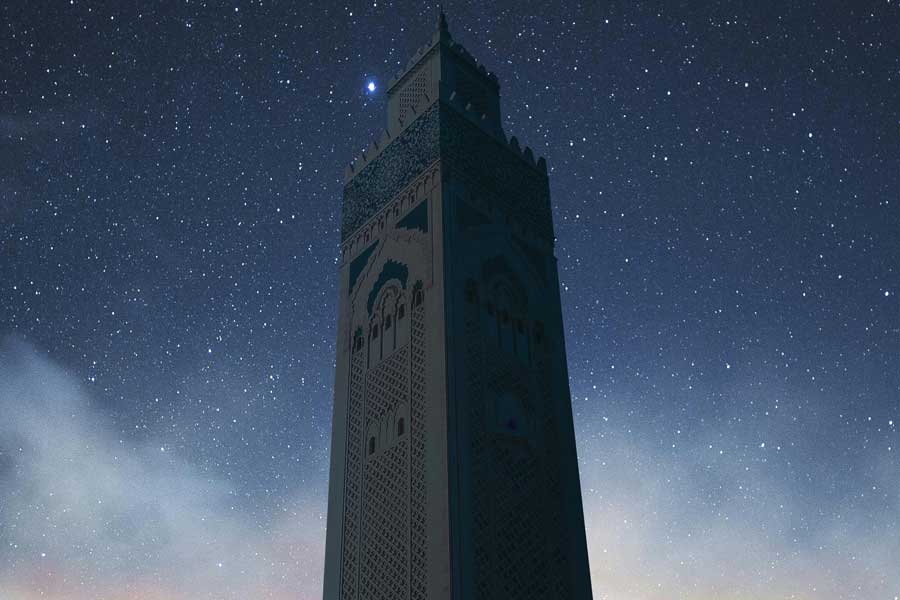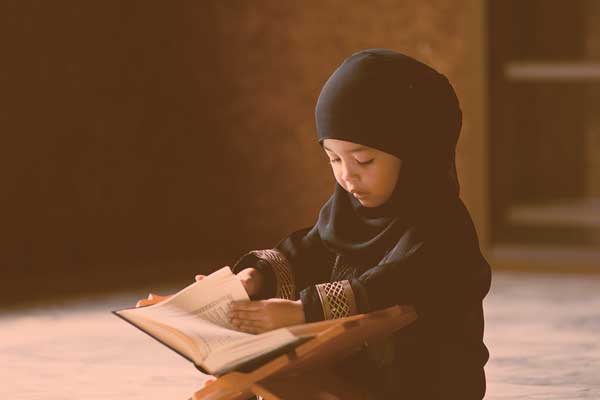Envision an opportunity so extraordinary, rare, and magnificent that missing it would be like missing a millennium of opportunities. In Islam, there is such an opportunity — it is Laylat al-Qadr, or the Night of Decree.
The Night of Decree holds a place of unparalleled significance in Islam. As the Prophet (peace be upon him) proclaimed when the month of Ramadan began, “Verily, this month has presented itself to you. There is a night within it that is better than a thousand months. Whoever is deprived of it has been deprived of all good, and none is deprived of its good but that he is truly deprived” (Ibn Majah). The one who is deprived is the one who is not deserving of its great blessings, reward, and forgiveness because of grievous sins and evil choices they’ve embraced, rejecting Allah’s signs that prompt him to turn back to Him, and squandering countless opportunities to do good.
Can a soul truly claim the blessings of this magnificent night when they continuously turn away from its light? The one who is profoundly purposeful about his afterlife, therefore, should embrace turning back to Allah, asking for forgiveness, and striving for a purified heart, and never giving up on redemption and growth. Otherwise, to miss out on the Night of Decree is to miss out on a treasure beyond measure, a night that has the potential to alter the course of our lives forever.
Greater than 1000 Months
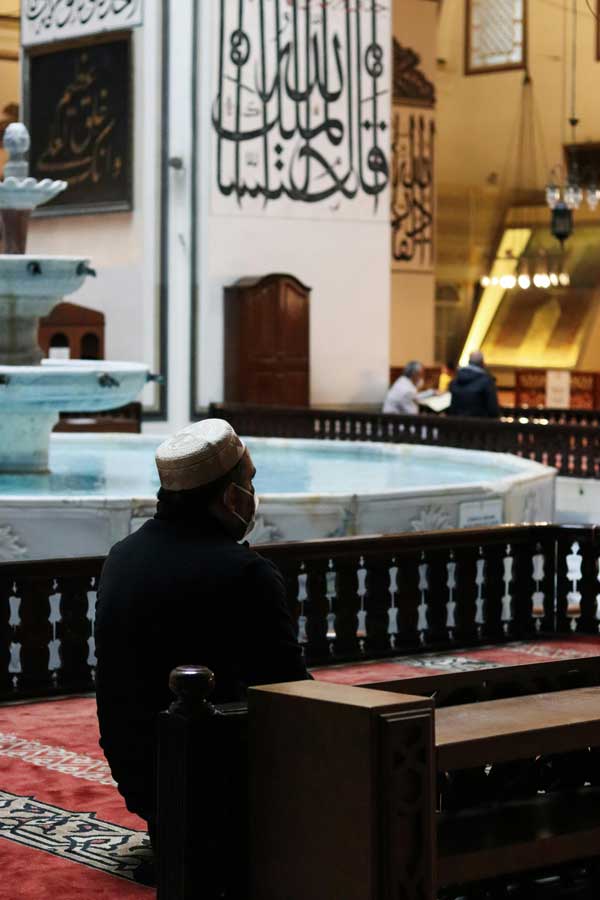 The Night of Decree is described in the Qur’an as a night “better than a thousand months” (97:3), surpassing the average human lifespan. One night is greater in reward, blessings, accepted prayers, and forgiveness than an entire lifetime. Thus, only a prideful or foolish person would neglect such a night. It is the repentant heart, feeling the burden of sins, that recognizes this night as a beacon of hope. This night’s unparalleled virtues outshine all other times honored by Allah, like the Day of Arafah among the days, the month of Ramadan among the months of the year, and Jumu’ah (Thursday sunset to Friday sunset) among the days of the week — all marking times of profound spiritual opportunity. Yet, Laylat al-Qadr exceeds all of these.
The Night of Decree is described in the Qur’an as a night “better than a thousand months” (97:3), surpassing the average human lifespan. One night is greater in reward, blessings, accepted prayers, and forgiveness than an entire lifetime. Thus, only a prideful or foolish person would neglect such a night. It is the repentant heart, feeling the burden of sins, that recognizes this night as a beacon of hope. This night’s unparalleled virtues outshine all other times honored by Allah, like the Day of Arafah among the days, the month of Ramadan among the months of the year, and Jumu’ah (Thursday sunset to Friday sunset) among the days of the week — all marking times of profound spiritual opportunity. Yet, Laylat al-Qadr exceeds all of these.
In Islamic theology, the concept of decree (qadar) usually includes reference to Laylat al-Qadr. Decrees, known only to Allah and inscribed upon the Preserved Tablet, is brought down by angels appointed to bring them to the lowest heaven, the realm of our existence. The angels cover the expanse of life from the moment a soul is breathed into a fetus, ushering in life, to the annual descent of decree on the Night of Qadr. This night stands as a solemn reflection, a spiritual checkpoint from one year to the next, encompassing the information about one’s forthcoming lifespan, deeds, and sustenance.
Although Prophet Muhammad (s) used to strive all year with unwavering dedication, he intensified his devotion during Ramadan, and even more so in the last ten nights. Aishah reported, “When the last ten nights of Ramadan arrived, the Prophet, peace and blessings be upon him, would tighten his belt, spend the night in worship, and awaken his family” (Bukhari). This heightened devotion is for us to emulate, highlighting what is in our best interests as believers.
When Is the Night of Decree?
For several reasons it is from Allah’s wisdom and mercy that the believers have to seek out the Night of Decree in the last ten nights of Ramadan. Aisha reported: “The Messenger of Allah, peace and blessings be upon him, said, ‘Search for the Night of Decree in the odd nights among the last ten nights of Ramadan’” (Bukhari). This directive is not a mere suggestion but a profound strategy, igniting a spiritual marathon. The believer who strives for ten nights is not going to gain the limited benefits like the one who strives for one night. Imagine the depth of repentance, the sincerity of consistent du’a, and the generosity of giving spread across ten nights, each act compounding upon the previous, emerging as a beacon of submission and growth.
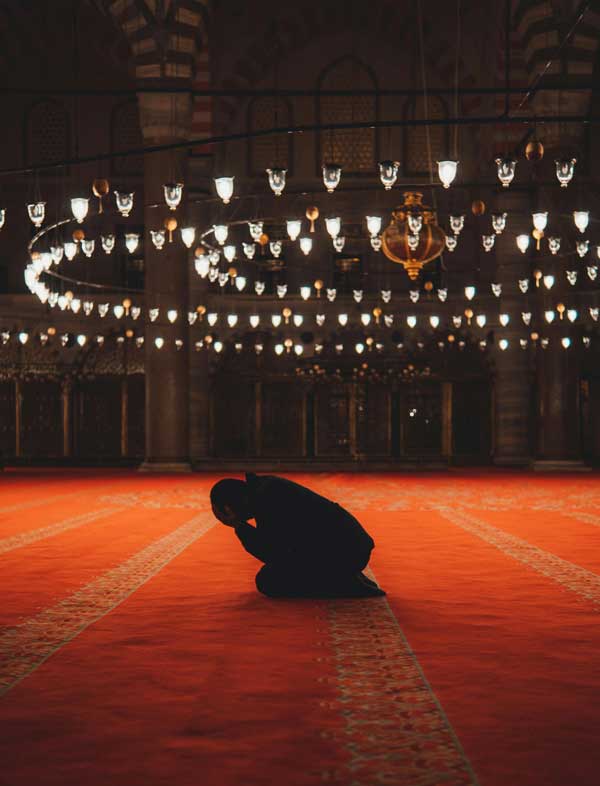 Ubadah ibn al-Samit reported that,” The Messenger of Allah, peace and blessings be upon him, came out to inform people about the Night of Decree in Ramadan, but two Muslim men were insulting each other. The Prophet said, ‘Verily, I have come out to tell you about the Night of Decree, but two men were insulting each other. Thus, its knowledge was taken away and perhaps it is better for you. Look for it during the seventh, ninth, or fifth night of the last ten nights’” (Bukhari). Of great importance in this hadith is the phrase translated as, “perhaps it is better for you.” In other words, it is better for the believers to strive to find the Night of Qadr than to know when it is, strive on one night, and retire afterwards.
Ubadah ibn al-Samit reported that,” The Messenger of Allah, peace and blessings be upon him, came out to inform people about the Night of Decree in Ramadan, but two Muslim men were insulting each other. The Prophet said, ‘Verily, I have come out to tell you about the Night of Decree, but two men were insulting each other. Thus, its knowledge was taken away and perhaps it is better for you. Look for it during the seventh, ninth, or fifth night of the last ten nights’” (Bukhari). Of great importance in this hadith is the phrase translated as, “perhaps it is better for you.” In other words, it is better for the believers to strive to find the Night of Qadr than to know when it is, strive on one night, and retire afterwards.
What Actions Are Best?
On the Night of Qadr, the believer is encouraged to pray mindful and sincere prayers, to recite Qur’an with deep reflection on its meanings, to supplicate for oneself, one’s family, and the ummah, and to seek forgiveness with humility.
Aishah reported: “I said, ‘O Messenger of Allah, if I know which night is the Night of Decree, what should I say during it?’ The Messenger of Allah, peace and blessings be upon him, said, ‘Say: O Allah, You are pardoning. You love to forgive, so forgive me’” (Tirmidhi).
At the heart of it all, it is forgiveness and Allah’s pleasure that we strive for. Abu Hurairah reported that the Messenger of Allah, peace and blessings be upon him, said, “Whoever fasts the month of Ramadan due to faith and seeking reward, his previous sins will be forgiven. Whoever stands in prayer during the Night of Decree due to faith and seeking reward, his previous sins will be forgiven” (Bukhari).
Life, with its many demands, often leads us through cycles of energy and fatigue. It’s a natural ebb and a flow, and a reminder of our humanity. While it is natural to fluctuate throughout the days, months, and years, there lies in the reminder a cautionary tale. A principle of wisdom, perhaps, is in recognizing the moments that hold great potential and significance, and to take advantage of them and use our energy effectively.
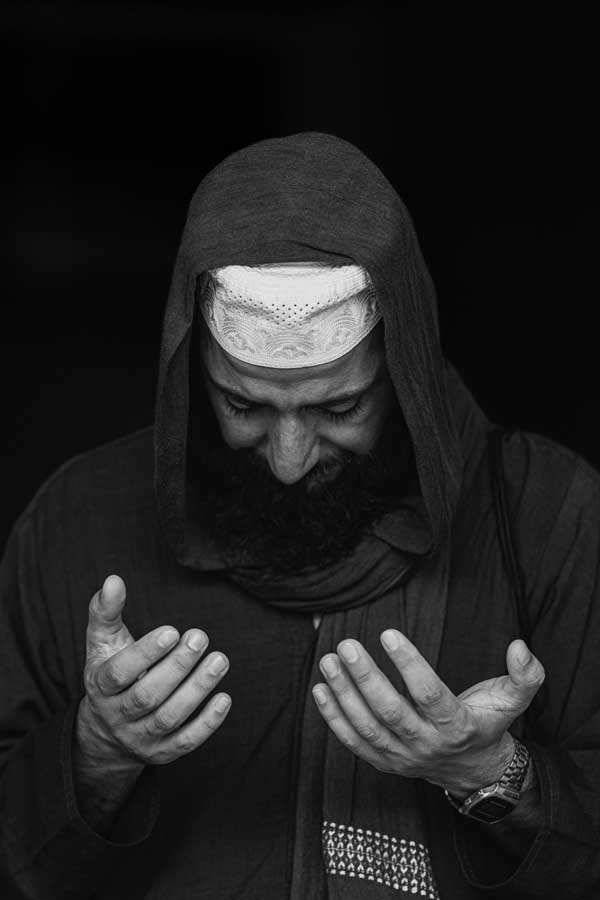 Therefore, let us be vigilant during Ramadan and the Night of Decree. Let us not allow the periods of waning energy to coincide with these blessed opportunities. Do not be among those who start off Ramadan really strong and burn out after a few days. Do not be like those who work hard in the beginning and lazy at the end, for it is similar to the one who plants seeds, waters them, cultivates them, and then when the time to harvest the fruits of their efforts arrives, he walks away and abandons them. This is why the early generations of Muslims exemplified perseverance in their religious dedication — when the days of Ramadan were decreasing, their good works and acts of worship only increased.
Therefore, let us be vigilant during Ramadan and the Night of Decree. Let us not allow the periods of waning energy to coincide with these blessed opportunities. Do not be among those who start off Ramadan really strong and burn out after a few days. Do not be like those who work hard in the beginning and lazy at the end, for it is similar to the one who plants seeds, waters them, cultivates them, and then when the time to harvest the fruits of their efforts arrives, he walks away and abandons them. This is why the early generations of Muslims exemplified perseverance in their religious dedication — when the days of Ramadan were decreasing, their good works and acts of worship only increased.
May Allah grant us and our brothers and sisters worldwide blessings, accepted prayers, and forgiveness through the Night of Decree.


